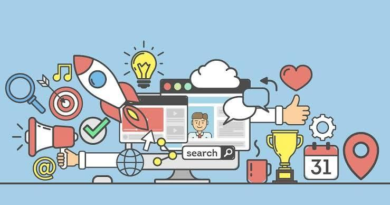Significance of monitoring laws for businesses
Introduction
It’s no secret that businesses spend a lot of time and money to ensure the safety of their employees. While it’s necessary for businesses to protect themselves from liability and in cases where employees have committed acts of misconduct such as theft, sexual harassment or assault on others or themselves. However, the way that companies go about monitoring these instances can vary depending on what type of company they are.
A fine balance between business and employees’ rights
There is a fine balance between business and employees’ rights.
Employees may have the right to receive information about their working conditions, but they also have the right to confidentiality. This means that if you want to share information with your employee, you need to make sure that he or she understands what this means for them in terms of confidentiality.
If an employee feels uncomfortable or harassed by management and does not report these feelings, then it can impact negatively his/her performance at work.
Impacts of laws
Monitoring laws are important for businesses and employees.
Monitoring laws can be used to protect both employees and businesses.
Monitoring laws can help protect the privacy of both individuals and businesses.
Monitoring the ‘digital footprint’
Monitoring the ‘digital footprint’
- You can use monitoring software to track employee activity. This includes:
- A daily log of all work completed, including tasks and timings.
- An attendance report that shows who has attended meetings or training sessions on time, as well as who has been late or absent from work.
- You can also use monitoring software to track employee productivity by looking at the time they spend working and the quality of their work (e.g., errors).
Employee privacy – work premises under scrutiny
- Employees have right to privacy.
- Employers have a right to monitor employees.
- Employers must notify employees of monitoring and must provide them with a copy of the monitoring results (if applicable).
Protecting vital and sensitive data
Data protection legislation is a set of rules that regulate how businesses handle personal information. It covers all types of data, including names and addresses, health details, financial information and criminal records.
Data protection principles state that an organization must only collect or process personal data for specified purposes; keep accurate records; store personal data securely; allow individuals to access their own records if requested; protect the confidentiality and accuracy of any information about them (including any information about them which has been provided by third parties); notify individuals when there is a risk to their rights under these laws (for example if there’s been a breach); keep accurate accounts so that they can be easily audited or challenged by regulators or external bodies like the Information Commissioner’s Office (ICO). The trend of hiring services like IT services London Ontario is on the rise.
Preparing for a legal and ethical monitoring system
A clear policy is a must for any monitoring system. Without one, you will be left guessing who is responsible for what and how business operations will be handled when things go awry. You should also ensure that all employees are trained in their roles and responsibilities, as well as how they should respond if an issue arises.
There are several steps to take before setting up your monitoring program:
- Create an outline of the policies that will guide your organization’s behavior during this process (for example, what information is considered confidential).
- Map out the procedures surrounding these policies (for example, who has access to it?).
- Determine what types of actions would trigger alerts or notifications under these situations (i.e., if someone accessed private data without authorization).
You can motivate yourself without being mean to yourself.
You can motivate yourself without being mean to yourself.
When you are motivated, your goal is achievable and you will succeed.
The key to motivation is thinking positively about what you can do differently and how this will help you achieve your goals.
Conclusion
We hope this article has given you a better understanding of the challenges that businesses face when they start to monitor their employees’ social media activity. It’s clear from our research that there are many benefits to having an effective monitoring system in place, but it also comes with some downsides such as privacy violations and potential legal implications for employers. The good news is that these issues can be mitigated by following best practices and maintaining strict controls on employee access to company resources such as computers or phones.




